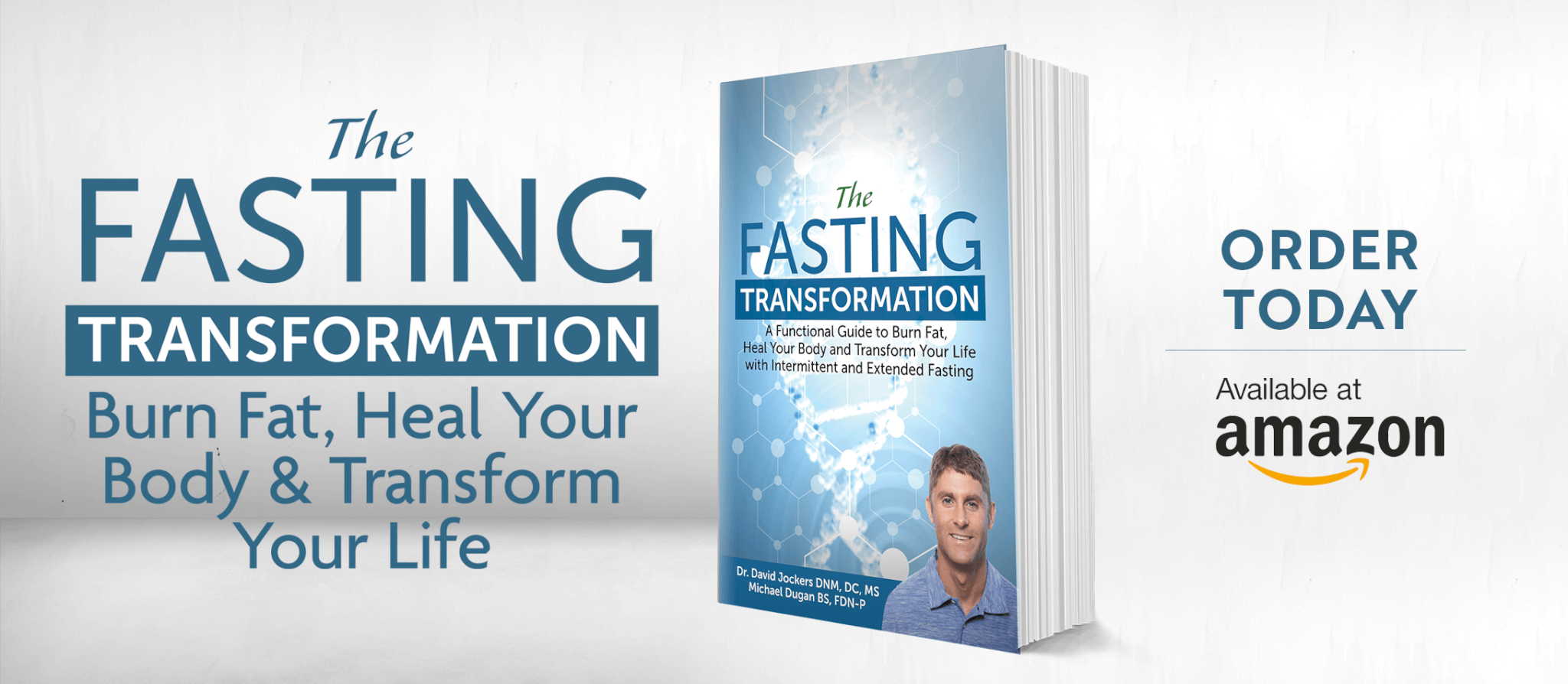
In This Episode:
- Solve your DNA riddle to protect yourself from health risks.
- Why you need to blow off stress NOW.
- The surprising link between trauma and cancer
- How ketogenic diets cripple cancer cells
- Discover your glucose-ketone index and its hidden message.
- Shortlist of which tests you need to ask your doctor to run.
- How to tailor the right keto diet for your personal DNA
- Match the macro foods that choke off certain types of cancer.
Dr. Jockers calls his guest Alison Gannett “an energetic beacon of hope”. She specializes in custom oncological nutrition and created a 28-day DIY program called Conquer Cancer with Keto.
Listen now as she describes how important it is to know your DNA. Are you doing the right keto for your body? What foods and supplements does Alison recommend for different types of cancer? All this and more in today’s episode!
“Don’t wait to get cancer to make changes in your life.”
-Alison Gannett
Episode Sponsors
We partner with great companies that make superior products that can help benefit your health. These products have gone through a review and vetting process by Dr. Jockers and his team and are products that we use and recommend for others.
They are truly the best of the best supplements, tools, and resources you can find to help improve your health! Even better, we have worked with the manufacturers to get you exclusive community discounts so you can get them for the lowest price on the internet.
Paleovalley Essential C Complex
Today’s episode is proudly sponsored by Paleovalley and its Essential C Complex. Not only does this immunity-boosting product have the three most potent sources of Vitamin C on the planet, but it also gives you 750% of the daily recommended dose — exactly the amount your immune system needs to stay in top shape.
Hurry and grab yours from Paleovalley.com/jockers to save 15% off today!
Liver Health
For anyone looking to ignite their fat-burning metabolism, boost their energy, and transform how they look and feel, they must start taking care of their liver. Your liver is your body’s master detoxifier. It performs over 500 key functions in your body every single day. After decades of wear and tear, our livers slow down and become sluggish. Fortunately, there’s a simple, all-natural solution that I recommend. It’s called Liver Health Formula.
Liver Health Formula contains 12 powerful botanicals clinically proven to recharge and protect your liver at the cellular level. It helps restore your liver’s detoxifying abilities. Try Liver Health Formula completely risk-free, and receive 5 FREE gifts when you order today. Just go to GetLiverHelp.com/Jockers to claim your risk-free supply of Liver Health Formula and all 5 bonus gifts.
Cacao Bliss
Today’s episode is proudly sponsored by Cacao Bliss, a superfood unprocessed chocolate powder. Boost your feel-good neurotransmitters while protecting your body from oxidative stress! Use it in almond milk, or for baking. Experience pure bliss at Cacao Bliss and use code DAVID to get 15% off!
C60
If you are over 40 and seeking to overcome fatigue and brain fog, an excellent solution is available. Carbon 60, also known as C60, is a powerful Nobel Prize-winning antioxidant that optimizes mitochondrial function, combats inflammation and neutralizes toxic free radicals.
Today’s episode is proudly sponsored by shopc60.com. By visiting this website and using the coupon code “JOCKERS,” you can enjoy a 15% discount on your first order. Whether you follow a keto or intermittent fasting lifestyle or have a sensitive digestive system, shopc60.com offers a range of products tailored to your needs.
Subscribe To The Podcast On:
Connect with Alison Gannett:
Connect with Dr. Jockers:
- YouTube
- Website
- If you are interested in being a guest on the show, we would love to hear from you! Please contact us here!
People who listened to this podcast also enjoyed:
- Building Radical Resilience and Cellular Healing with Sayer Ji
- Top 10 Supplements to Improve Your Brain
- Functional Nutrition and Hormone Harmony with Dr Michelle Sands
- Top 12 Ways to Heal and Regenerate Brain Cells
- Microbiome, Immune & Digestive Health Strategies with Kiran Krishnan






Great interview! I have listened to a few things with Allison and she always mentions deep-frying her foods (in healthy fats). I was under the impression this was still a dangerous practice due to nutrient loss & carcinogenic compounds. Is this really a good thing to do for those trying to heal from cancer and doing therapeutic keto?
You can deep fry things in coconut oil and use anti-oxidants like herbs (turmeric, oregano, basil, thyme, etc) on the food to help reduce any sort of carcinogenic components of frying. Blessings!
Thanks for this fantastic interview! A potential source of lead might be garden trellises and any galvanized metal (like rabbit wire), it can even be in the plastic tomato trellises, I went to Tractor Supply and noticed some of the plastic tomato trellises had a lead warning on them, I went back to take a picture and they’d all sold out 🙁 So people are probably using those in their gardens 🙁
According to the lead safe mama, Tamara Rubin:
““But is this actually a problem?
In a word, yes. In my experience (based on testing of garden soil that I have done around the country over the years) this is a real problem – a real potential source of Lead exposure to humans. Where there is chicken wire installed, I have consistently found the soil in close proximity to that wire is more likely to test positive for a high level of Lead (usually measurably higher levels than the surrounding soil that one might otherwise find in a garden or chicken coop.) The only exception to this is if the soil is heavily contaminated already because it is next to a lead painted building or there are other lead painted components in the garden or chicken coop.
One story from my archives: I worked with a family (fairly recently) whose child [who has an autism diagnosis and also tested positive for Lead, in spite of living in a fully-remodeled home with no notable building-component based Lead hazards] had a favorite activity: growing tomatoes in his garden. After finding virtually no potential sources for his Lead exposure in the home, we went out to his garden — and determined that his galvanized metal tomato cages were all positive for a high level of Lead. We also discovered that the soil underneath the tomatoes (the soil he was planting in and touching each day that he gardened) was also positive for a relatively high level of Lead. Soil in the other areas of this child’s garden – not under the galvanized metal – tested negative for Lead. It was then that I realized the potential for galvanized metal fencing to specifically and directly contaminate the soil underneath the items – as well as for it to be a potential source of exposure for the gardener. The simplest solution: use stainless steel alternatives or other readily available Lead-free options.
My primary concerns with using galvanized metal in gardening and farming:
Tomatoes: point noted above, potential contamination of soil under tomato cages.
With chickens: they like Lead because it tastes sweet — and they are more likely to peck at contaminated soil under Leaded fencing and even to peck directly at the fencing itself. This can result in Lead-poisoned chickens and Lead-contaminated eggs.
As a pest barrier: unfortunately I have seen this COUNTLESS times – folks create an organic gardening bed, and before laying down the top 6 or 12 inches of soil for their vegetables to grow in, they lay down a full layer of hardware cloth over the bottom of their garden bed to keep out burrowing rodents. This risks that (eventually, with rain, time and normal soil turnover expected in a garden) all of the soil in that bed may become contaminated with Lead.
As trellis: same concern as with the tomatoes – potential contamination of the soil below (and possibly of the items grown if the edible component of the plant touches the trellis during the growing period.)
In all applications: potential exposure to the person who handles or installs the metal or touches it in general daily use with gardening. Potential contamination of food plants that come in direct contact with the wire.”
https://tamararubin.com/2018/04/chicken-wire-mesh-hardware-cloth-2201-ppm-lead-cadmium/
Thanks so much for sharing!